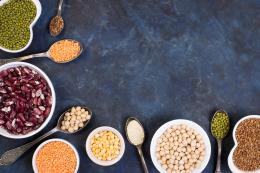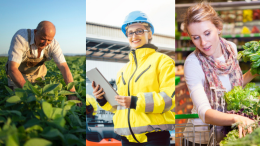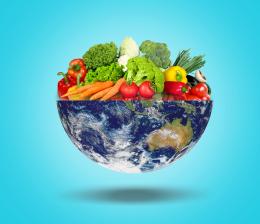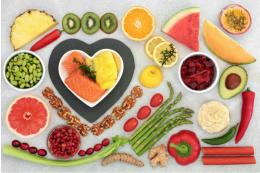European Economic
and Social Committee
Maisto tvarumas
Maistas yra mūsų gyvenimo pagrindas ir neatsiejama Europos kultūros dalis. Tačiau mūsų valgomas maistas, jo gamybos būdai ir iššvaistyti kiekiai daro didžiulį poveikį žmonių sveikatai, gamtos ištekliams ir visai visuomenei:
- Žmonės, ypač vaikai, vis dažniau kenčia nuo antsvorio ir nutukimo, atsirandančių dėl nesveikos mitybos.
- Ūkininkai ir darbuotojai negauna teisingos kainos už savo produkciją.
- Trečdalis maisto visoje maisto grandinėje yra prarandamas arba iššvaistomas.
- Dėl to kenčia aplinka – maisto gamyba ir vartojimas daro didžiulį poveikį klimato kaitai, biologinės įvairovės nykimui, oro ir vandens taršai, dirvožemio degradacijai ir t. t.
COVID-19 krizė tapo įspėjimu, kad reikia pokyčių. Išryškėjo tai, kad maisto tiekimas „nuo ūkio iki stalo“ negali būti savaime suprantamas, taip pat paaiškėjo, kad subjektai ir veikla žemės ūkyje ir visoje maisto grandinėje yra tarpusavyje susiję. Teisingų, efektyviai išteklius naudojančių, įtraukių ir tvarių tiekimo grandinių visame žemės ūkio ir maisto sektoriuje reikia labiau nei bet kada anksčiau, kad būtų užtikrinta vienoda nauda piliečiams, ūkininkams, darbuotojams ir įmonėms.
EESRK jau daugelį metų aktyviai ragina kurti tvarią ir visapusišką maisto politiką. Toks integruotas ir sisteminis požiūris yra labai svarbus sprendžiant daugialypius ir tarpusavyje susijusius uždavinius, darančius poveikį maisto sistemoms; reikėtų užtikrinti ekonomikos, aplinkos ir socialinį bei kultūrinį tvarumą, politikos sričių (pavyzdžiui, žemės ūkio, aplinkosaugos, sveikatos, švietimo, prekybos, ekonomikos, technologijų ir t. t.) integraciją ir nuoseklumą ir skatinti bendradarbiavimą visais valdymo lygmenimis.









